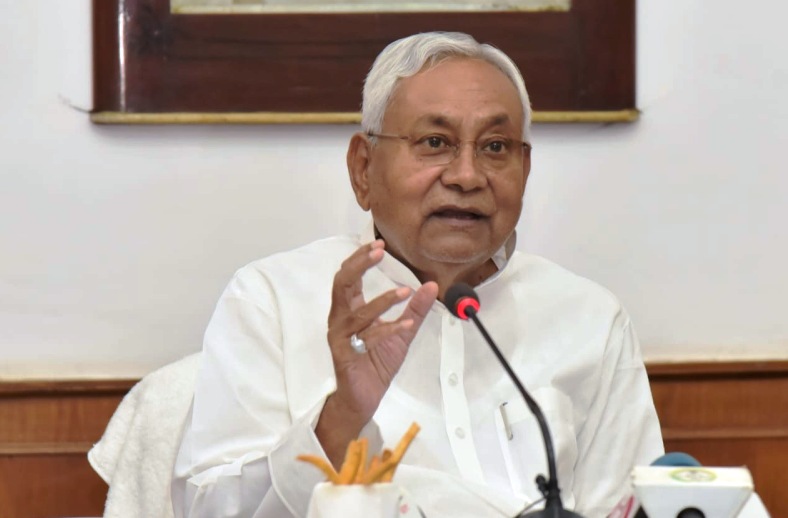Nitish Kumar doubts BJP's intention on passing Women's Reservation Bill

Patna/IBNS: Bihar Chief Minister Nitish Kumar Wednesday expressed serious doubt over the intention of the ruling Bharatiya Janata Party (BJP) in implementing the Women's Reservation Bill even after its clearance in the Parliament.
Kumar told media persons here that he had been advocating for the reservation of women in Lok Sabha and state assemblies for long.
The Bihar Chief Minister said the Women's Reservation Bill by the Union government indicated that only after census and delimitation, women would get reservation in Lok Sabha and state assemblies.
"It reflected the fact that the very intention of the BJP government at the Centre was doubtful on the issue," he said.
Kumar said that women's reservation would have been a reality, had the BJP government at the Centre conducted a general census on time.
The Bihar CM said that census was delayed and caste census demand was rejected by the Centre which created a situation for delay in giving reservation to women even after approval of the Parliament.
Kumar said that Bihar was the first state to give 50 percent reservation to women in Panchayati Raj institutions and local bodies after his government was voted to power in 2005.
In Bihar government services, women had been given 35 percent reservation while 50 percent was reserved for appointments of primary school teachers, he said adding that 35 percent reservation was given to women in recruitments in state police.
The lower house of the Parliament passed the bill through a voice vote in its new building during the five-day special session called on the occasion of 75 years of Indian Independence.
The bill received the support of 454 MPs while only two members voted against it.
The Women's Reservation Bill will be presented in Rajya Sabha on Thursday, which is the penultimate day of the special session.
This was the first time the bill, designed to provide 33 percent reservation to women in Parliament and state assemblies, was introduced and passed in the Lok Sabha.
The implementation of the quota, though, can take place only after a census and delimitation, which pushes it back by at least six years.
The Delimitation Commission is the only body that can take a call on which seats to reserve, he said, indicating that census data is the bedrock on which such decisions are taken.
[With UNI inputs]




